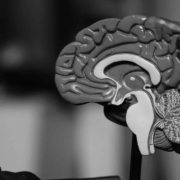If you’ve ever wondered whether potassium calms anxiety, you’ve come to the right place. In this blog, Human Performance Hub explores whether or not potassium calms nerves and how it works within the body.
So, does potassium calm nerves? Potassium has been shown to calm nerves, anxiety and depression. It does this by regulating a range of hormones produced as a result of stress, like cortisol and adrenaline. Studies have shown that potassium activates neurons involved in positive thoughts and feelings.
Read on to learn more about how potassium helps with nerves and the many more benefits of consuming this mineral.
Can Potassium Help With Nerves?
Yes. Ingesting potassium assists with regulating a variety of hormones in your body, especially those produced as a result of stress, such as cortisol and adrenaline. This helps reduce any feelings of anxiousness or tension that you may be experiencing.
Potassium and Anxiety
A common cause of anxiety is having a poor diet. When you lack a particular vitamin or mineral, your system can be hugely affected. In relation to potassium, low levels can cause mental fatigue, stress and anxiety. The best way to overcome this is to eat a well balanced diet with plenty of natural foods.This can help you overcome your anxiety.
Potassium and Depression
Low potassium levels have also been associated with an increase in mood disturbances and depression. A 2008 study published in the British Journal of Nutrition, examined the relationship between potassium and mood. They found that a high-potassium diet helped to relieve symptoms of depression and tension. These results show that potassium is extremely effective in generally uplifting our mood.
What Is Potassium and How Does It Work in the Body?
Potassium is a mineral that every cell in your body needs. It helps just about everything in your body, including your brain, nerves, kidneys, heart and other organs. As an electrolyte, potassium helps to manage how much water is in your body. It also helps to keep up your body’s electrical system whilst moving nutrients into your cells and taking waste out. Additionally, potassium keeps your body’s sodium levels in check.
Other Health Benefits of Potassium
Potassium is incredibly important because it helps our hearts, kidneys and other organs work normally. Here is a list of the many benefits of potassium:
Increases Brain Function
High potassium levels act as a vasodilator, allowing blood to move more easily through the blood vessels. This blood carries oxygen to the brain, which increases your activity levels and cognitive abilities.
Normalises Blood Pressure
Potassium works to balance blood pressure and counteract the effects sodium has on raising it. This helps to reduce the risk of hypertension and heart disease.
Increases Metabolism
Potassium helps your body extract nutrients from what you eat and helps to break down and process these nutrients. It also plays an important role in synthesising protein and metabolising carbohydrates.
Improves Muscular & Heart Health
A diet that is adequate in potassium helps maintain strong muscles. Potassium helps muscle tissue grow properly and is also involved in the electrical signals sent by muscles. This lets them contract properly.
Potassium is also important for a healthy heart, as its movement in and out of cells helps maintain a regular heartbeat.
Aids Nervous System
Your nerves send messages to various parts of your body. Potassium helps to make the transportation of these signals easier and more efficient. This improved functioning helps your muscles perform better.
Helps Prevent Kidney Stones
Kidney stones are ‘hard stones’ made from calcium in your urine. One form of potassium, potassium citrate, binds up this calcium. This helps prevent crystals from forming that could become kidney stones.
Helps Regulate Serotonin
A study in the journal ‘Nature Neuroscience’ investigated the role of potassium in the regulation of serotonin, the neurotransmitter primarily targeted by antidepressants. The results showed that potassium appears to act as a facilitator in ensuring the brain’s ability to properly utilise serotonin.
Potassium counteracts the thoughts and feelings associated with depression and instead activates neurons involved in positive thoughts and feelings. Without the electrical charge sparked by potassium, neurotransmitters like serotonin cannot be utilised to make us feel better. This explains why even a slight decrease in potassium levels can result in significant feelings of anxiety.
Helps Prevent Osteoporosis
With this condition, bones can become less dense which makes them more likely to break. Foods rich in potassium can slow this down. Potassium does this by cutting down on how much calcium leaves your body in your urine, keeping this calcium around helps to keep bones strong.
Helps Regulate Fluid Balance
The amount of water in your intracellular fluid (water found inside your cells) and extracellular fluid (water found outside your cells in areas such as your blood and spinal fluid) is directly affected by your electrolytes, potassium and sodium. Potassium is the main electrolyte in the intracellular fluid and determines the amount of water inside the cells. Sodium is the main electrolyte in the extracellular fluid and determines the amount of water outside the cells. It’s therefore crucial that you consume the right electrolytes, including potassium.
How Much Potassium Do You Need?
Adults (19 to 64 years) need 3,500mg of potassium a day. You should be able to get all the potassium you need from your daily diet.
Below, we’ll explain what happens if you get too much or too little potassium in your diet:
Too Much (Hyperkalemia)
A healthy individual will naturally pass extra potassium out of the body, so most people don’t actually have to worry about getting too much potassium. However, if something makes it hard for your body to get rid of potassium, it can cause hyperkalemia. Those at risk include people with kidney conditions and those who take certain types of medicines.
Bear in mind that hyperkalemia doesn’t always cause symptoms. It can however make your muscles feel weak or cause nausea.
Too Little (Hypokalemia)
Not enough potassium can make your muscles weak. Common symptoms include cramps, constipation and fatigue. It is possible to have hypokalemia because you don’t get enough potassium from food but it’s more likely to happen with conditions like Crohn’s disease or ulcerative colitis, if you have severe vomiting or diarrhoea.
If you have low potassium, foods are a great natural source. Your doctor may even recommend that you supplement with potassium.
To find out how much potassium is in the fluid part of your blood, the NHS has a potassium test.
Examples of Potassium Rich Foods
Here is a list of foods high in potassium:
- Acorn squash
- Bananas
- Dried fruits (apricots, peaches, prunes, raisins)
- Milk
- Salmon
- Baked potatoes (skin on)
- Tuna
- Yogurt
- Spinach
- Avocado
- Coconut water
- Lentils
- Melon
- Mushrooms
- White beans
Potassium Supplements at Human Performance Hub
Now that you are aware of the many benefits of potassium consumption, take a look at Human Performance Hub’s range of potassium supplements.
From our Electrolyte Hydration Complex formula to our Metabolic Multi Complex vitamins, there is something to suit all individuals. Designs For Health fuel our products and only contain high-quality ingredients, all at a great price.
Get in touch with us today to discuss your specific requirements.





